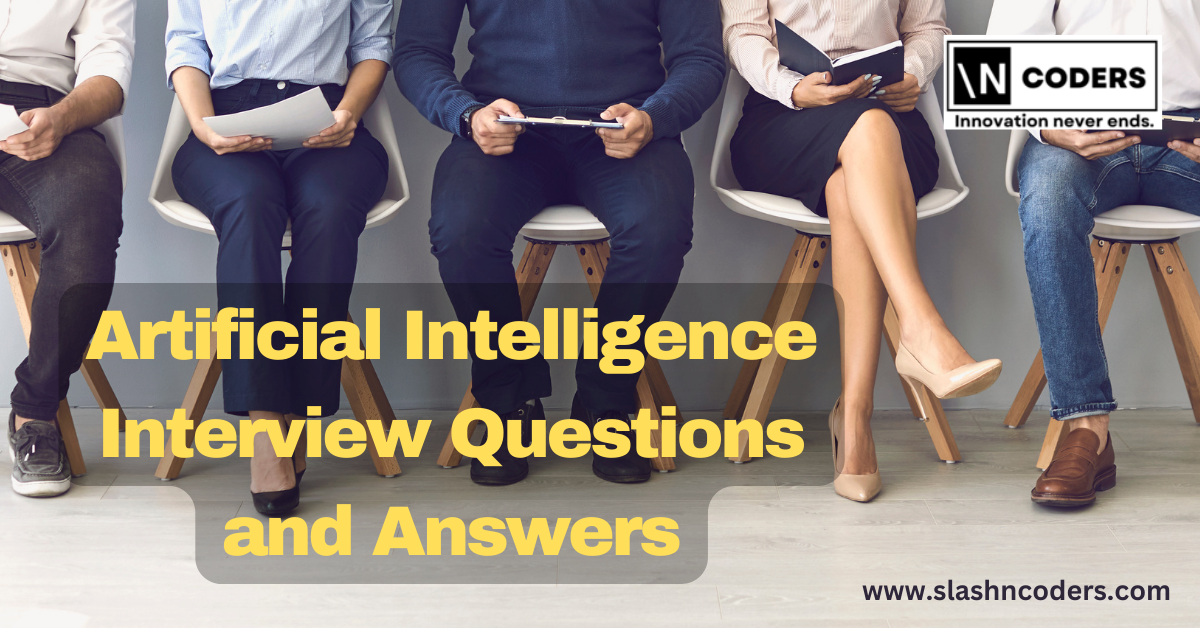Artificial Intelligence Interview Questions and Answers: Artificial Intelligence (AI) is one of the most promising fields in the tech industry today. With the demand for AI professionals increasing every day, companies are looking for the best talent to join their teams. If you are an aspiring AI professional, you need to prepare well for your AI interview to showcase your skills and expertise in the field. To help you with your interview preparation, we have compiled a list of the most commonly asked AI interview questions and their answers.
Are you preparing for an AI interview but don’t know where to start? Look no further! We have compiled a list of the most common AI interview questions and their answers to help you prepare and ace your interview.
Introduction:
AI is an interdisciplinary field that involves various areas, including machine learning, natural language processing, robotics, and computer vision. AI technology is becoming more popular, and it is now widely used in various industries, including healthcare, finance, and manufacturing. As a result, the demand for AI professionals is increasing, and many companies are now seeking to hire the best talent in the field.
Preparing for an AI interview can be challenging, especially if you don’t know what to expect. However, with the right preparation, you can increase your chances of success. To help you prepare, we have compiled a list of the most commonly asked AI interview questions and their answers.
Common Artificial Intelligence Interview Questions and Answers
1. What is Artificial Intelligence, and how does it differ from Machine Learning?
Artificial Intelligence is a branch of computer science that aims to create intelligent machines that can perform tasks that typically require human intelligence. AI is a broader term that includes various subfields, including machine learning, natural language processing, robotics, and computer vision. Machine Learning, on the other hand, is a subset of AI that involves training algorithms to learn patterns and make predictions based on data. Machine Learning algorithms can improve their performance over time as they learn from more data.
2. What are the different types of Machine Learning, and how do they differ?
There are three main types of Machine Learning:
- Supervised Learning: This involves training an algorithm on labeled data to learn the relationship between input and output variables. The algorithm can then use this knowledge to make predictions on new data.
- Unsupervised Learning: This involves training an algorithm on unlabeled data to identify patterns and relationships in the data. Unsupervised learning is useful for tasks such as clustering, anomaly detection, and dimensionality reduction.
- Reinforcement Learning: This involves training an agent to learn through trial and error. The agent receives rewards for correct actions and penalties for incorrect actions. Over time, the agent learns to take actions that maximize the rewards.
3. What is Deep Learning, and how does it differ from Machine Learning?
Deep Learning is a subset of Machine Learning that involves training algorithms called neural networks on large amounts of data. Deep Learning algorithms can learn to perform tasks that were previously impossible with traditional Machine Learning algorithms. Neural networks are composed of multiple layers of interconnected nodes that process and transform the input data to produce the desired output. Deep Learning is more complex and computationally intensive than traditional Machine Learning.
Sample Interview Questions:
- What is Artificial Intelligence, and how does it differ from Machine Learning?
- What are the different types of Machine Learning, and how do they differ?
- What is Deep Learning, and how does it differ from Machine Learning?
- What are the most common applications of AI?
- What is an Artificial Neural Network, and how does it work?
- How do you handle missing data in a dataset?
- What is the difference between a generative and a discriminative model?
- What is overfitting, and how do you avoid it?
- What are the different types of biases in Machine Learning, and how do you address them?
- What is gradient descent, and how does it work?
- What is the difference between regression and classification problems?
- What is the difference between supervised and unsupervised learning?
- What is transfer learning, and how is it useful?
- What is the curse of dimensionality, and how does it affect Machine Learning algorithms?
- What are some common evaluation metrics for Machine Learning models?
- What is ensemble learning, and how does it work?
- What is backpropagation, and how is it used in Neural Networks?
- What is reinforcement learning, and how is it different from supervised and unsupervised learning?
- What is natural language processing, and what are some of its applications?
- What are some common techniques for feature engineering?
- How do you choose the number of hidden layers in a Neural Network?
- What is the difference between a support vector machine and a logistic regression model?
- What is the difference between precision and recall, and how do you calculate them?
- What are some ethical considerations in the development and use of AI?
- What are some current challenges in the field of AI, and how do you think they can be addressed?
By preparing for these common AI interview questions, you’ll be able to demonstrate your knowledge and expertise in the field and increase your chances of landing your dream job in AI. Good luck!
Read, Also Top Python Interview Questions


